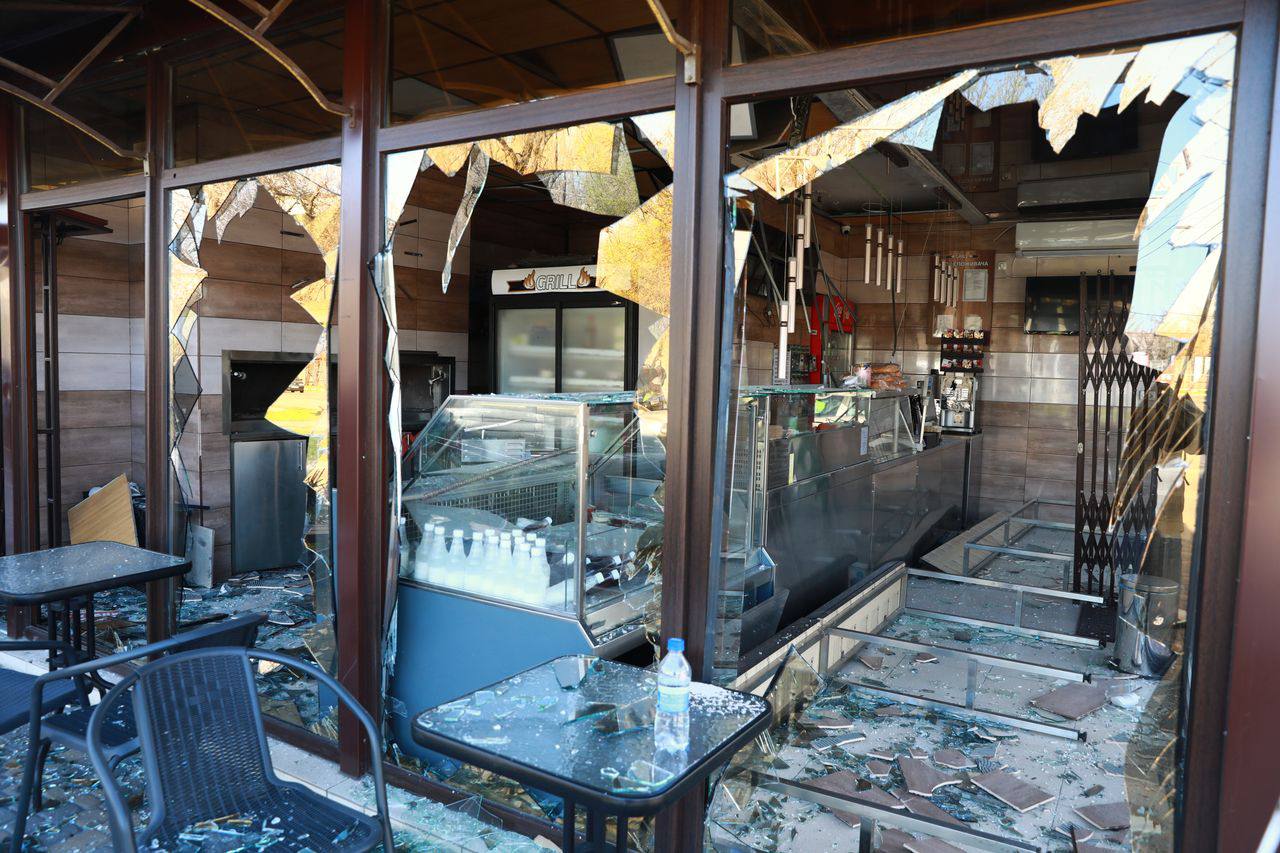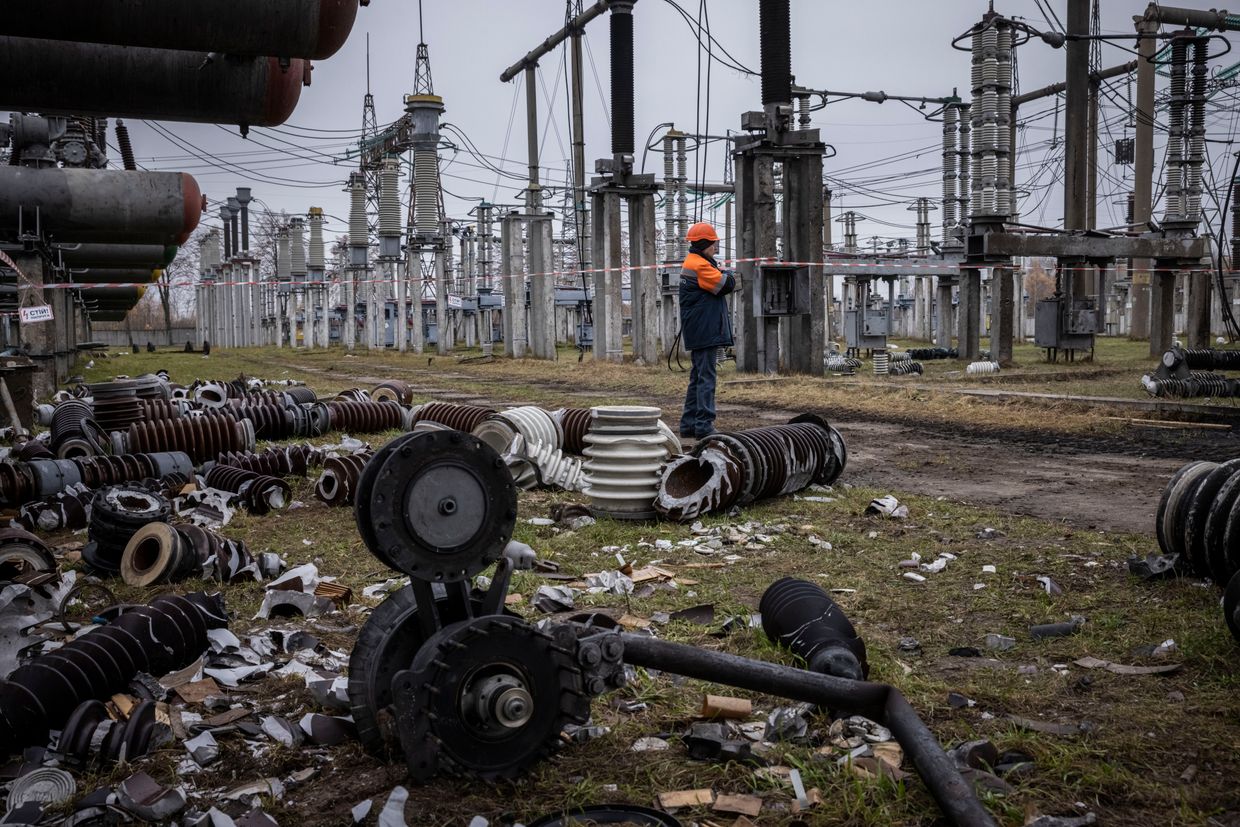Russian attacks on Zaporizhzhia kill 3, injure 13

According to the latest update provided by the regional governor, Russian forces launched five missiles at the city of Zaporizhzhia on April 5, resulting in the deaths of three individuals and injuring at least 13 others, including a child and two journalists.
Zaporizhzhia, home to approximately 710,000 residents, is situated in Ukraine's southeast and is frequently targeted by Russian attacks due to its proximity to the front line.
The strikes were primarily aimed at civilian infrastructure but also impacted industrial facilities, as stated by Zaporizhzhia Oblast Governor Ivan Fedorov during a national television broadcast. Fedorov further disclosed that three apartment buildings and at least ten houses suffered damage in the attacks.
Earlier via Telegram, Anatolii Kurtiev, the city's acting mayor, reported damages to a dormitory and a store as a result of the missile strikes.
According to the latest update from the regional governor, on April 5, Russian forces launched five missiles at Zaporizhzhia, resulting in the deaths of three individuals and injuries to at least 13 others, including a child and two journalists.
Zaporizhzhia, with a population of approximately 710,000 residents, is located in Ukraine's southeast and is frequently targeted by Russian attacks due to its proximity to the front line.
The strikes primarily targeted civilian infrastructure but also affected industrial facilities, as reported by Zaporizhzhia Oblast Governor Ivan Fedorov during a televised address. Fedorov revealed that three apartment buildings and at least 10 houses were damaged in the attacks.
Earlier communication via Telegram from Anatolii Kurtiev, the city's acting mayor, highlighted damages sustained by a dormitory and a store as a result of the missile strikes.
Energy equipment damaged in Russian strikes against Odesa Oblast

Ukrenergo, Ukraine's state-owned energy operator, disclosed on April 5 that Russian forces targeted energy infrastructure facilities in Odesa Oblast overnight, resulting in equipment damage. Fortunately, no blackouts were reported as a consequence of the strikes.
Recent times have seen Moscow escalating its missile and drone strikes against Ukraine's critical infrastructure, with large-scale attacks directed at energy facilities across the nation.
In another incident reported by Ukraine's Energy Ministry on April 5, a Russian drone attack in a southern region of Ukraine led to damage at Ukrenergo's high-voltage substation.
On April 4, scheduled blackouts were initiated in six Ukrainian regions due to power deficits arising from Russian attacks. The following day, restrictions were imposed on 550,000 consumers in Kharkiv Oblast, with approximately 330,000 located in Kharkiv itself.
Ukraine's military denies Russian troops reached Chasiv Yar's suburb
According to Ukraine's eastern command spokesperson Andrii Zadubinnyi, Russian troops have not penetrated the suburbs of Chasiv Yar in Donetsk Oblast, as stated to Reuters on April 5.
Situated approximately 10 kilometers west of Bakhmut and 50 kilometers north of Avdiivka, Chasiv Yar holds strategic importance for Russian forces aiming to advance towards Kostiantynivka, Kramatorsk, and Sloviansk, as noted by the Ukrainian military.
Despite Russian proxies' claims on April 5 suggesting their forces reached Chasiv Yar, disseminated through the Kremlin-controlled news agency RIA Novosti, Zadubinnyi advised against believing such assertions.
While acknowledging ongoing conflict in the area, Zadubinnyi clarified that Russian troops were not present in Chasiv Yar. The Institute for the Study of War (ISW) reported that Russian forces conducted a roughly reinforced company-sized mechanized assault toward Chasiv Yar on April 4, advancing up to the city's eastern outskirts. However, Ukrainian forces successfully thwarted further progress into Chasiv Yar, according to ISW's findings.
In an address on April 4, President Volodymyr Zelensky stated that despite ammunition shortages, Ukraine had managed to "stabilize positions" in areas where Moscow anticipated success.
Zelensky had previously indicated that a major Russian offensive might occur by the end of May or in June, as mentioned in late March.
Debates in Congress may delay US aid for Ukraine further

The ongoing infighting among Republicans in the US House of Representatives poses a significant hurdle to the timely approval of American funding for Ukraine. Speaker Mike Johnson's efforts to navigate these internal conflicts may further delay the decision on aid for Ukraine.
It is anticipated that upon the House's return from recess on April 9, Johnson will present a revised proposal for Ukraine aid that he believes will garner support from Republicans. However, staunch Republicans are pushing for the inclusion of provisions related to border security with Mexico and spending cuts, complicating the process.
Marjorie Taylor Greene, a prominent ally of Republican figure Donald Trump, has threatened to initiate Johnson's removal from office, alleging that he disregards the party's interests. While such an initiative may lack widespread support initially, there is speculation that this could change if Johnson proposes a Ukraine aid package favored more by Democrats than Republicans and refuses to accept amendments.
Given these challenges, achieving a consensus among House Republicans may take several months, further delaying the approval of Ukraine funding. Meanwhile, it has been almost two months since the Senate approved a $95 billion compromise aid package, including funding for Ukraine, which Johnson has yet to bring to a vote.
With limited productive weeks remaining before lawmakers shift their focus to the presidential elections, time is running out for Congress to address critical issues such as aid for Ukraine.